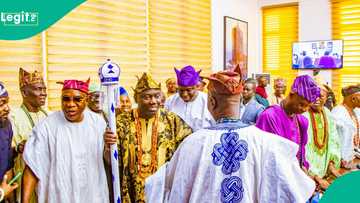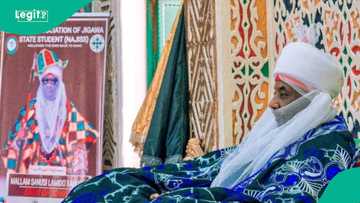Hausa culture and traditions in Nigeria: Top facts to know
Nigeria is home to many ethnic communities. All are rich in culture and traditions. Among the three largest communities is the Hausa ethnic group. The Hausa culture is heavily influenced by the Islamic religion.
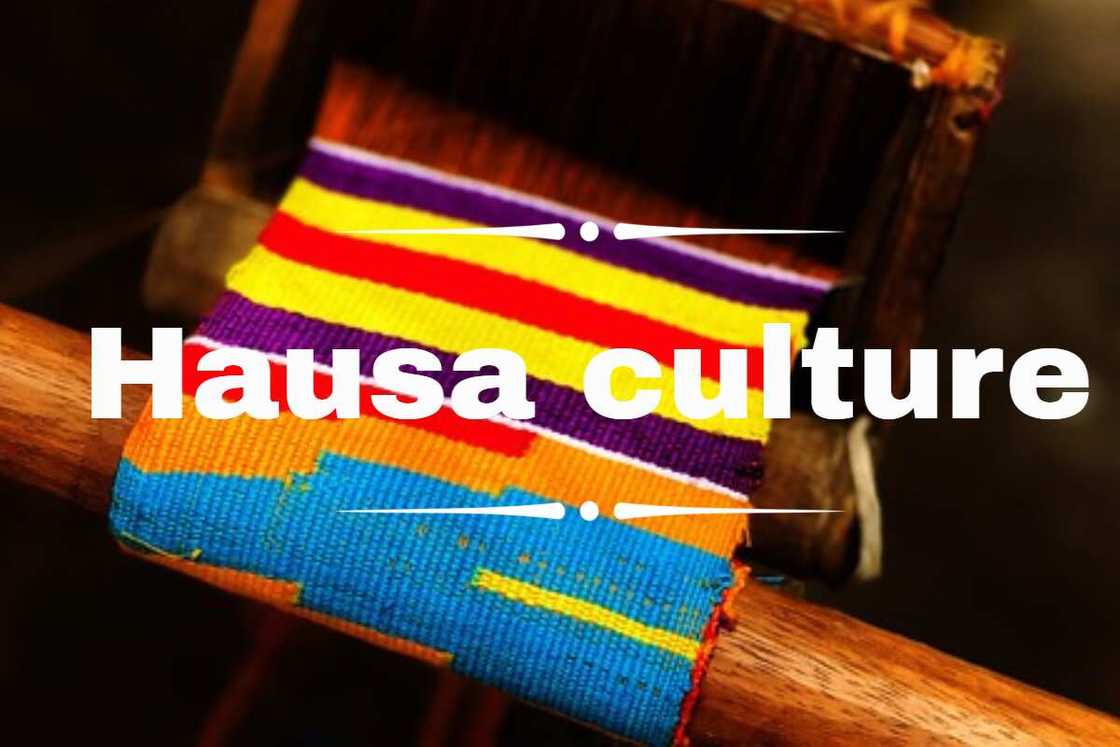
Source: UGC
Although westernisation and urbanisation have eroded the traditional values and lifestyles in many African communities, the Hausa culture is still practised in rural communities. Many people from this community follow the way of life of their ancestors.
Hausa culture and traditions in Nigeria
Hausa people are known for their hardworking nature. They engage in multiple economic activities to provide for their families. Discover more about their culture and traditions below.
Population and location
There are over 20 million Hausa people in present-day Nigeria. The ethnic group is among the top three largest communities in the country.
People from this community are mainly found in northwestern Nigeria. Over the years, they have become widely distributed geographically due to urbanisation. Many have intermingled with other ethnic communities.
Language
Persons from this community speak the Hausa language, which belongs to the Chadic group of the Afro-Asiatic family. The language is heavily infused with Arabic words due to Islamic influence.
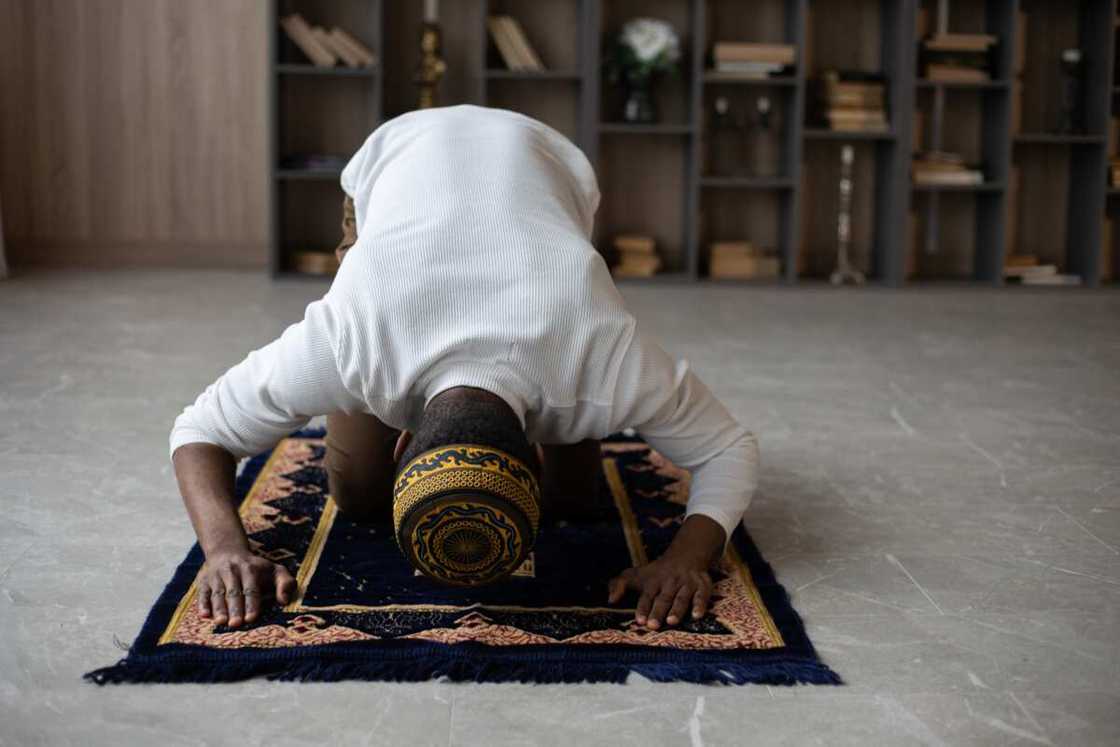
Source: UGC
Religion
A significant percentage of Hausa people are Muslims. They believe in Allah and Muhammad as His prophet. The teachings of the Quran guide their lives.
In some rural communities, Hausa people do not follow Islam. Instead, they worship nature spirits called bori or iskoki. These people are known as Maguzawa.
Oral history
According to the Hausa culture and tradition, it is believed that the community's mythical ancestor is Bayajidda. Bayajidda migrated from Baghdad in the 9th or 10th century AD. He stopped at the Bornu Kingdom.
He fled west of the Bornu Kingdom due to circumstances. One day, he helped the Daura King to kill a venomous serpent. The Darnu King rewarded him with the Queen of Daura in marriage.
Bayajidda and the Queen of Daura welcomed a son named Bawo, who founded the city of Biram. Bawo was blessed with six sons who ruled other Hausa city-states. All seven city-states were called Hausa bakwai.
Rites of passage
The Hausa culture and tradition includes several rites of passage. The first happens after the birth of a child. About seven days after birth, a naming ceremony is held. The child receives their name during the ceremony, which is mainly done according to Islamic teachings.
The second rite of passage is circumcision. Male children are circumcised when around seven years. The next rite of passage is engagement, which happens when young men and women are in their mid-to-late teens. In the traditional set-up, early marriages were common.
Wedding ceremonies follow, and these take several days. Celebrations start among the bride, her family, and friends as she is prepared for marriage.
Male representatives of the bride's and the groom's families meet at the mosque to sign the marriage contract according to Islamic law. The couple is then brought together. Marriages between relatives, e.g. cousins, are preferred.
When a member of this community passes away, Islamic burial principles are followed. Wives mourn their deceased husbands for approximately three months.
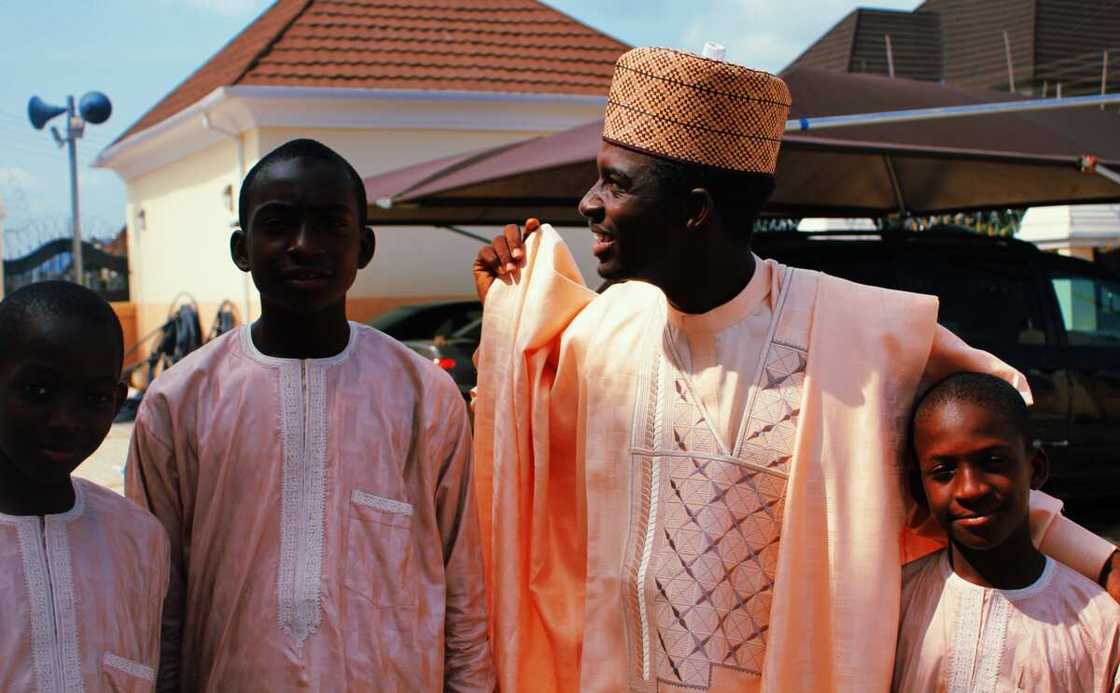
Source: UGC
Family and lifestyle
In the rural set-up, people live in large households called gidaje. A gidaje consists of a man, his wives, and children. It also includes his sons' wives and children, if married. Polygamy is widespread and accepted.
Examples of Hausa culture include being quiet and not showing emotion, especially among men. Respect for grownups and the elderly is encouraged, and people are required to live happily and peacefully with each other.
From a tender age, children are allowed to form friendships with their neighbours. Relatives work together in economic activities and are supposed to be supportive of each other.
Traditional occupation of the Hausa
The Hausa economy has rested on the intensive cultivation of staple and cash crops. The community members are known for growing maize, sorghum, millet, and other crops. They use manure from livestock for agriculture.
Besides farming, community members also engage in silversmithing, weaving, thatching, and leatherworking. The products from these crafts are sold on market days.
Food
The traditional Hausa diet is rich and healthy. Staple grains in the community include rice, millet, sorghum, and maize. These grains are normally ground into flour used to make various dishes.
Breakfast often consists of porridge. Sometimes, fried beans called kosai or wheat flour made goodies called funkaso are eaten in the morning.
Lunches and dinners mainly consist of a heavy porridge called tuwo and a soup or strew called miya. Soups are made using tomatoes, peppers, onions, okra, pumpkin, spinach, and other vegetables.
The community is known for consuming spicy food. The main sources of protein in the diet are peanuts, beans, milk, and meat. The must-try dishes from this community are tuwo shinkafa, masa, tsire/ suya, dambu, zogale, kuli kuli, fura da nono, kilishi, and miyan taushe.
Clothing
This community has an elaborate dressing style. Men normally wear large flowing gowns called gare or babban gida. These gowns have elaborate embroidery around the neck. They also wear colourful caps called huluna.
On the other hand, Hausa women wear wrap-around robes made of colourful fabric with matching blouses. They also wear head ties and shawls.
Traditionally, women were reserved in the private sphere of life, meaning they seldom left their homesteads. When married women leave their compound, they should wear veils and are often escorted by their children.

Source: Getty Images
Cultural heritage, sports, and recreation
One way of preserving culture and traditions among children is through folklore called tatsunya. Tatsunya means stories with a moral lesson. Through these stories, they also learn proverbs and riddles.
Art and music play are also common. Children take part in dances and local dramas. During community ceremonies, praise singers sing about the community's heroes, leaders, and history.
The predominant sports in this community are wrestling or koko and boxing or dumb. Matches are often held on holidays. Many Hausa people also enjoy soccer, which is Nigeria's national sport.
Are all Hausas Muslims?
No, a large percentage are Muslims, but the community has people called Maguzawa. These are people who worship nature spirits called bori or iskoki.
What is Hausa culture known for?
The Hausa culture is known for being predominantly Muslim and following Islamic teachings and doctrines. It is also known for its rich folklore and love for harmonious living.
Is Hausa a tribe or ethnic group?
Hausa is both a tribe and an ethnic group. It is one of the largest ethnic groups in the country, and people from this community speak the Hausa language.
The Hausa culture is rich, and adults do their best to preserve it by passing it on to their children. Most people from this community are Muslims, meaning the Islamic teachings and doctrines have influenced their lifestyle.
READ ALSO: Origin of Igbo tribe in Nigeria: Interesting theories to know
Legit.ng recently published details about the origin of the Igbo tribe in Nigeria. The Igbo tribe is one of the biggest ethnic groups in Nigeria and has a well-developed culture.
People from this community are mainly found in Igboland, which is made of Onitsha, Orlu, Owerri, Nnewi, Okigwe, and Aba regions. The community has about 30 dialects.
Source: Legit.ng

Cyprine Apindi (Lifestyle writer) Cyprine Apindi is a content creator and educator with over six years of experience. She holds a Diploma in Mass Communication and a Bachelor’s degree in Nutrition and Dietetics from Kenyatta University. Cyprine joined Briefly.co.za in mid-2021, covering multiple topics, including finance, entertainment, sports, and lifestyle. In 2023, she finished the AFP course on Digital Investigation Techniques. She received the 2023 Writer of the Year Award. In 2024, she completed the Google News Initiative course. Email: cyprineapindi@gmail.com

Adrianna Simwa (Lifestyle writer) Adrianna Simwa is a content writer at Legit.ng where she has worked since mid-2022. She has written for many periodicals on a variety of subjects, including news, celebrities, and lifestyle, for more than three years. She has worked for The Hoth, The Standard Group and Triple P Media. Adrianna graduated from Nairobi University with a Bachelor of Fine Arts (BFA) in 2020. In 2023, Simwa finished the AFP course on Digital Investigation Techniques. You can reach her through her email: adriannasimwa@gmail.com


